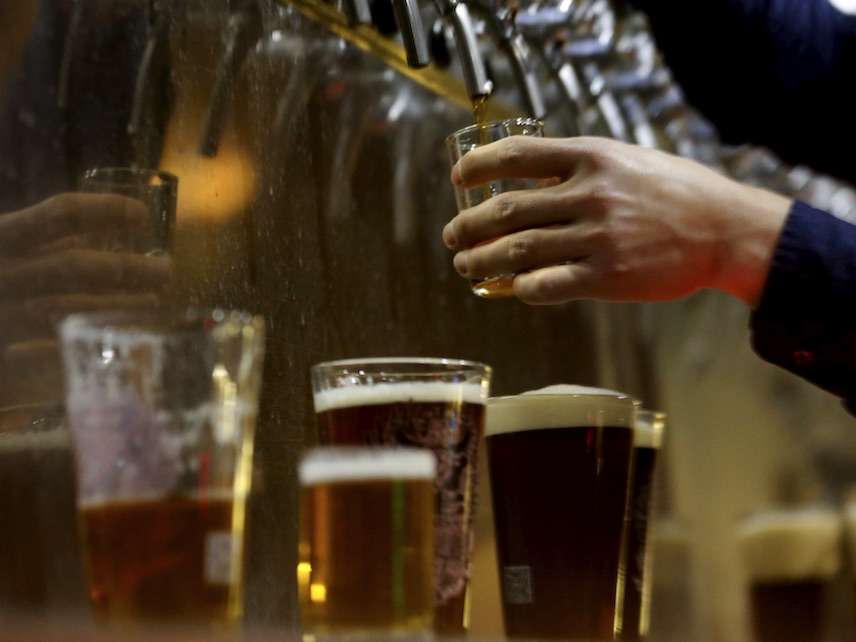Drunk History: When the Government Banned Female Bartenders
A shameful chapter in U.S. law.

"Why did it take America so long to have female bartenders?" So asks David Wondrich, author of the superb cocktail history, Imbibe!, in his latest column at The Daily Beast.
As Wondrich notes, "it wasn't about mixing drinks," since women are obviously capable of doing that. And "it wasn't about protecting the precious flower of American womanhood from the foul atmosphere of the bar," since American women have been drunkenly inhaling that atmosphere since at least the days of King George III. So "what was the taboo against barmaids about?" After a long, interesting overview of American drunk history, Wondrich settles on this thesis:
Any answer, I think, would have to be sketched out along these lines. During Colonial times, men fell into the job of tending bar, particularly in parts of the country where women were in short supply. With the diminished class system that prevailed over here, it wasn't seen as a somehow degrading or unmanly service job. It was seen for what it was, a moneymaking job with a fair amount of independence and just enough craft to earn its expert practitioners the respect of a nice-sized chunk of the populace. The more men mystified that craft part of the job by mixing up outlandish concoctions, tossing drinks between cups in long liquid arcs, dashing this and that into the glass with knowing winks, setting things on fire, so on and so forth, the more they could justify their high pay—and their exclusive possession of the job.
Surprisingly, Wondrich makes scant mention of one of the most obvious contributing factors to this sexist state of affairs. Namely, government regulators frequently banned women from working in this particular occupation. What's worse, those regulators received the blessing of the U.S. Supreme Court.
The state of Michigan, for instance, once had a law on the books forbidding women from working as bartenders unless they were "the wife or daughter of the male owner." Valentine Goesaert, who owned a bar in Dearborn, challenged the law for violating her right to tend bar at her own establishment. But the Supreme Court sided with the state. In an opinion written by progressive legal hero Justice Felix Frankfurter, the Court upheld the ban on the grounds that the judiciary owed vast deference to government regulation of economic activity.
"We cannot cross-examine either actually or argumentatively the mind of Michigan legislators nor question their motives," Justice Frankfurter wrote in Goesaert v. Cleary (1948). "We cannot give ear to the suggestion that the real impulse behind this legislation was an unchivalrous desire of male bartenders to try to monopolize the calling." Indeed, Frankfurter declared, "Michigan could, beyond question, forbid all women from working behind the bar."


Show Comments (31)